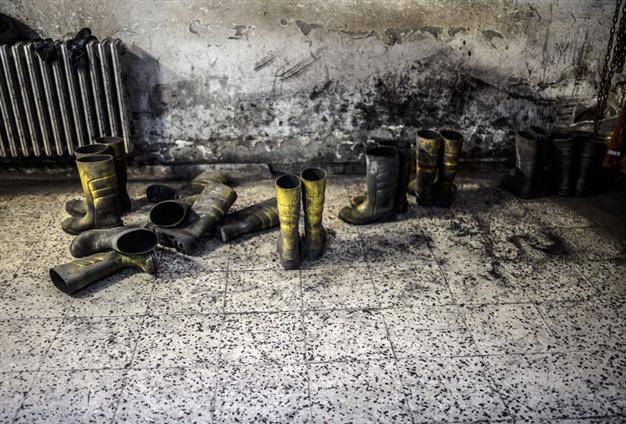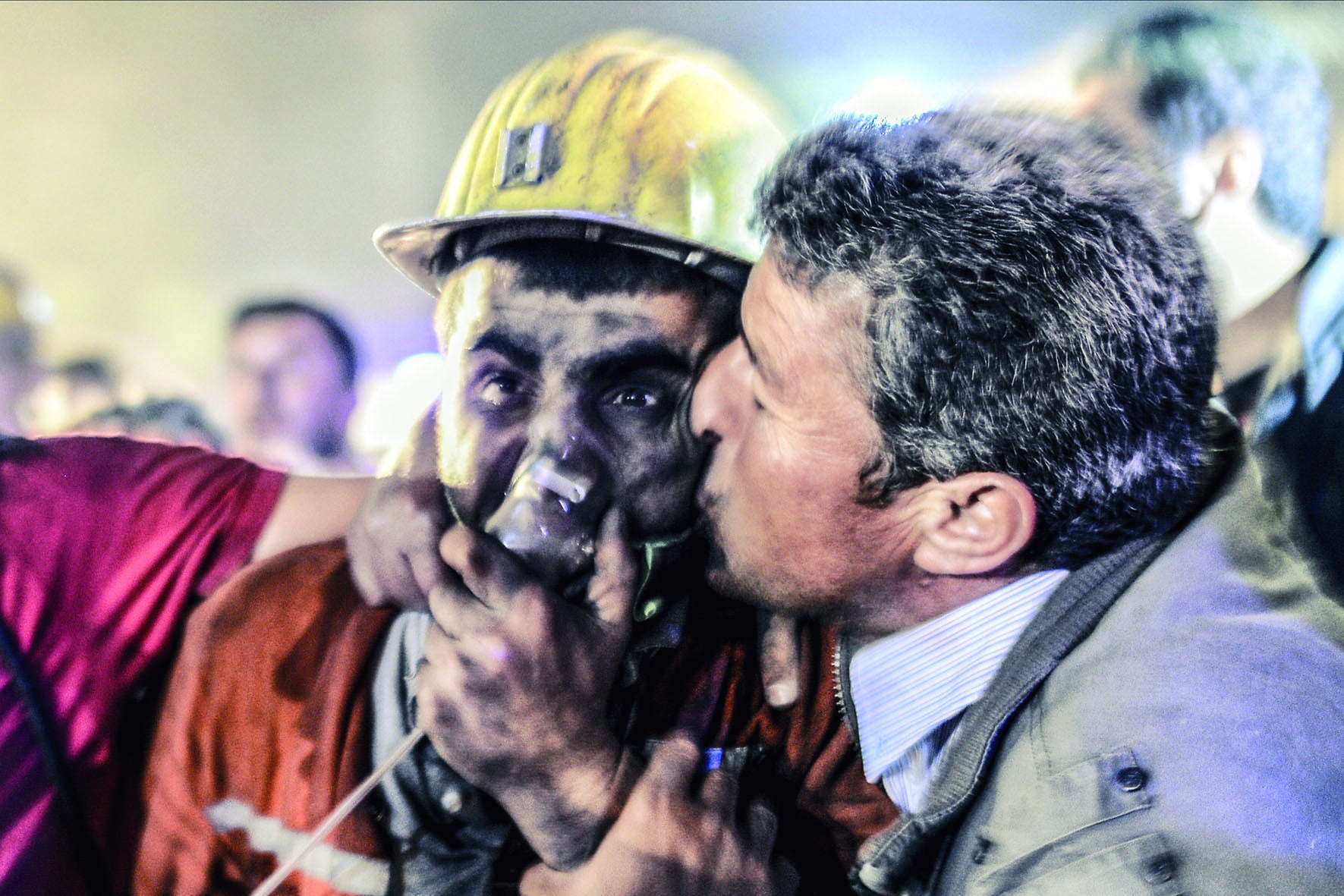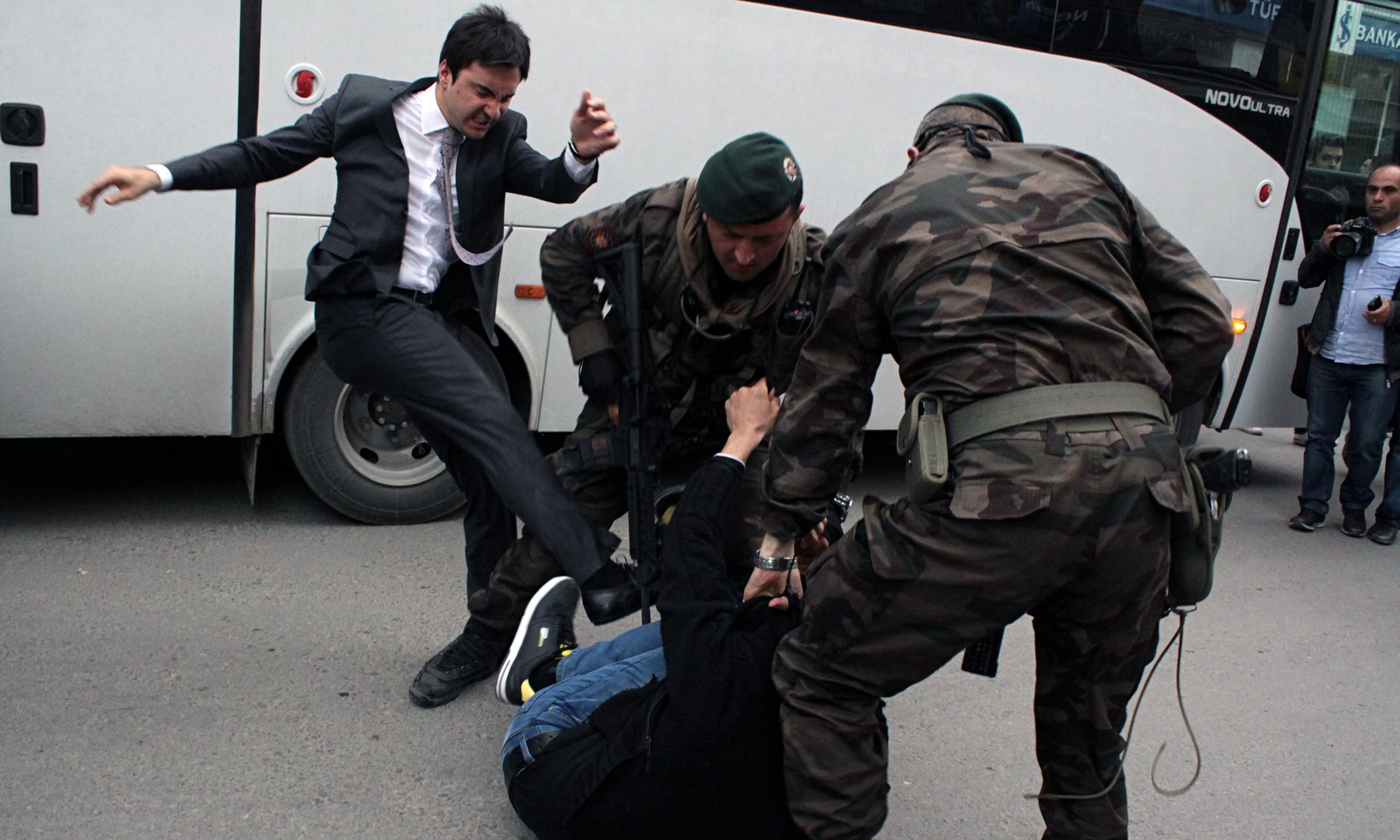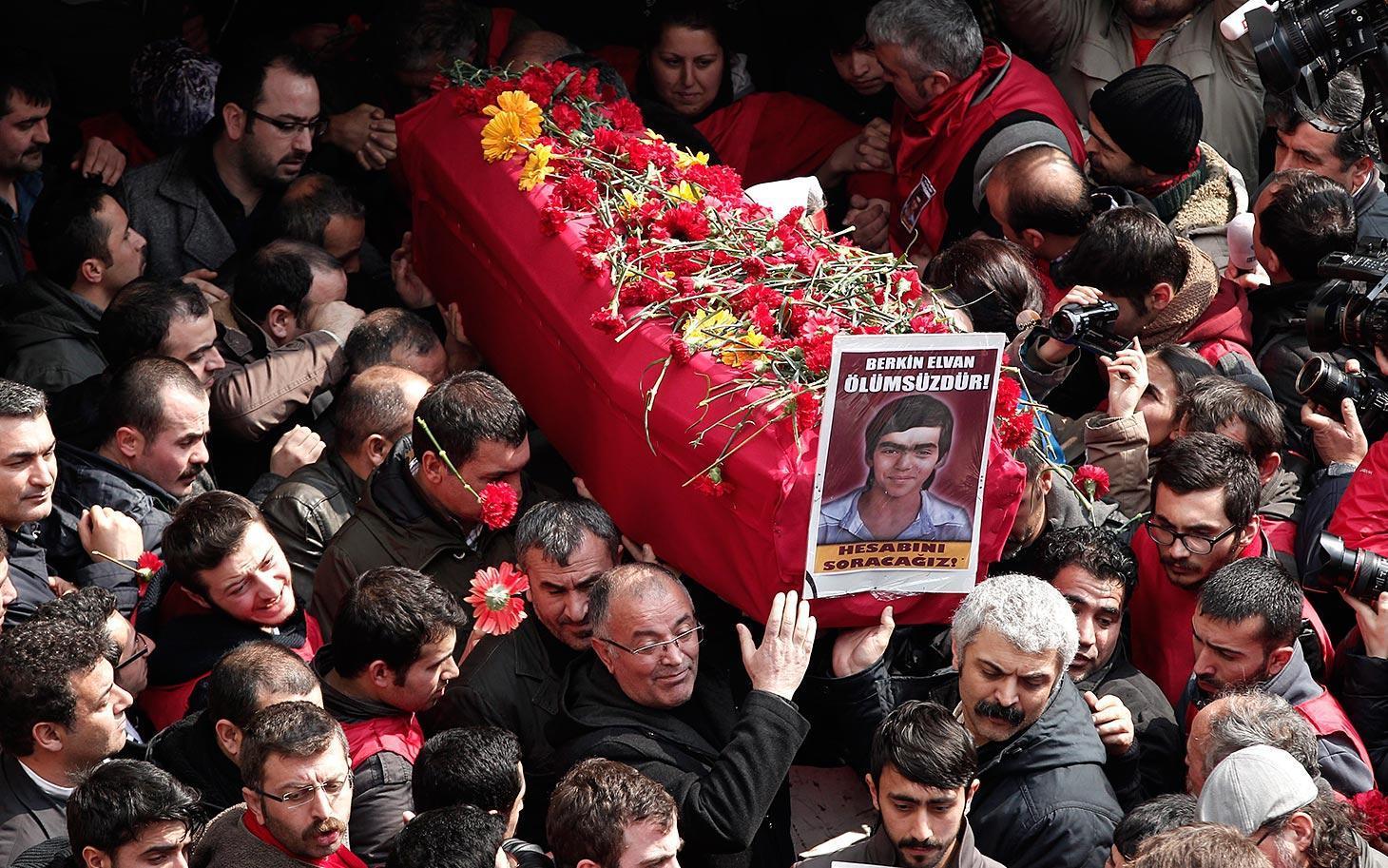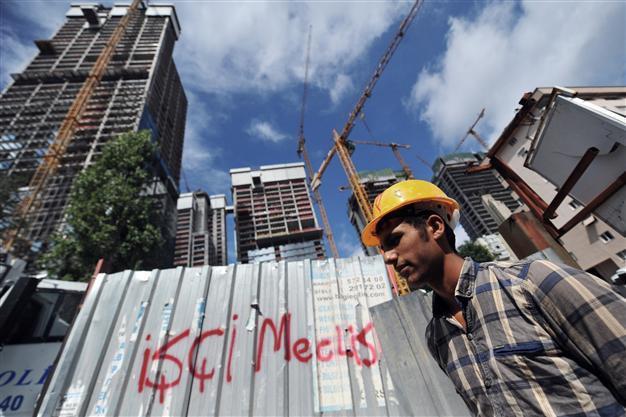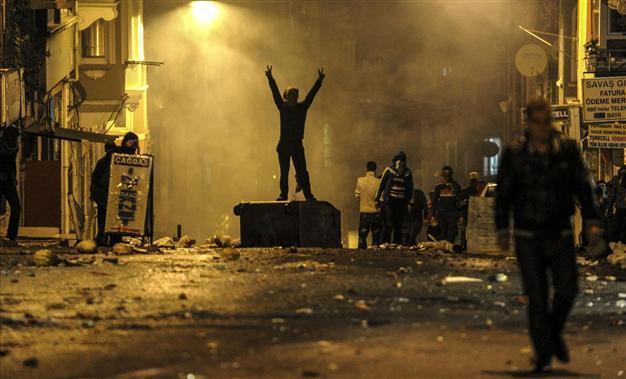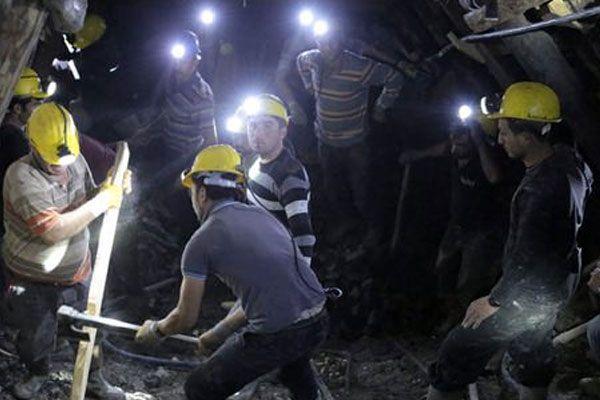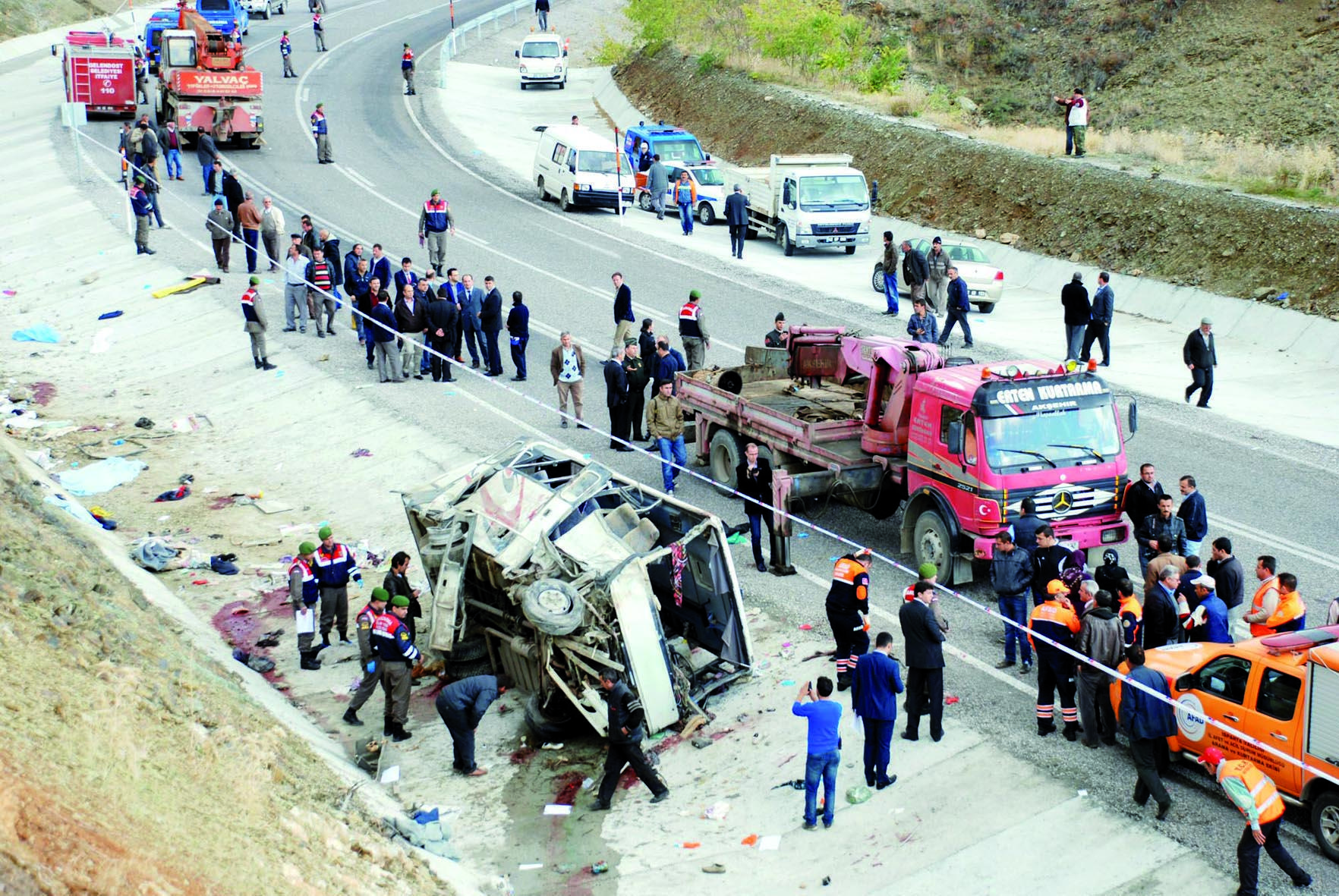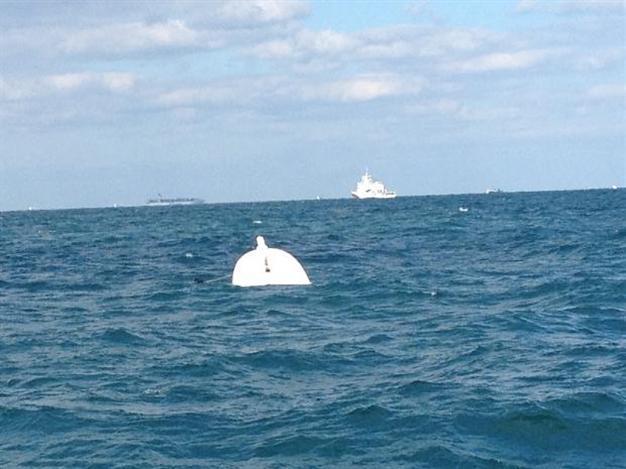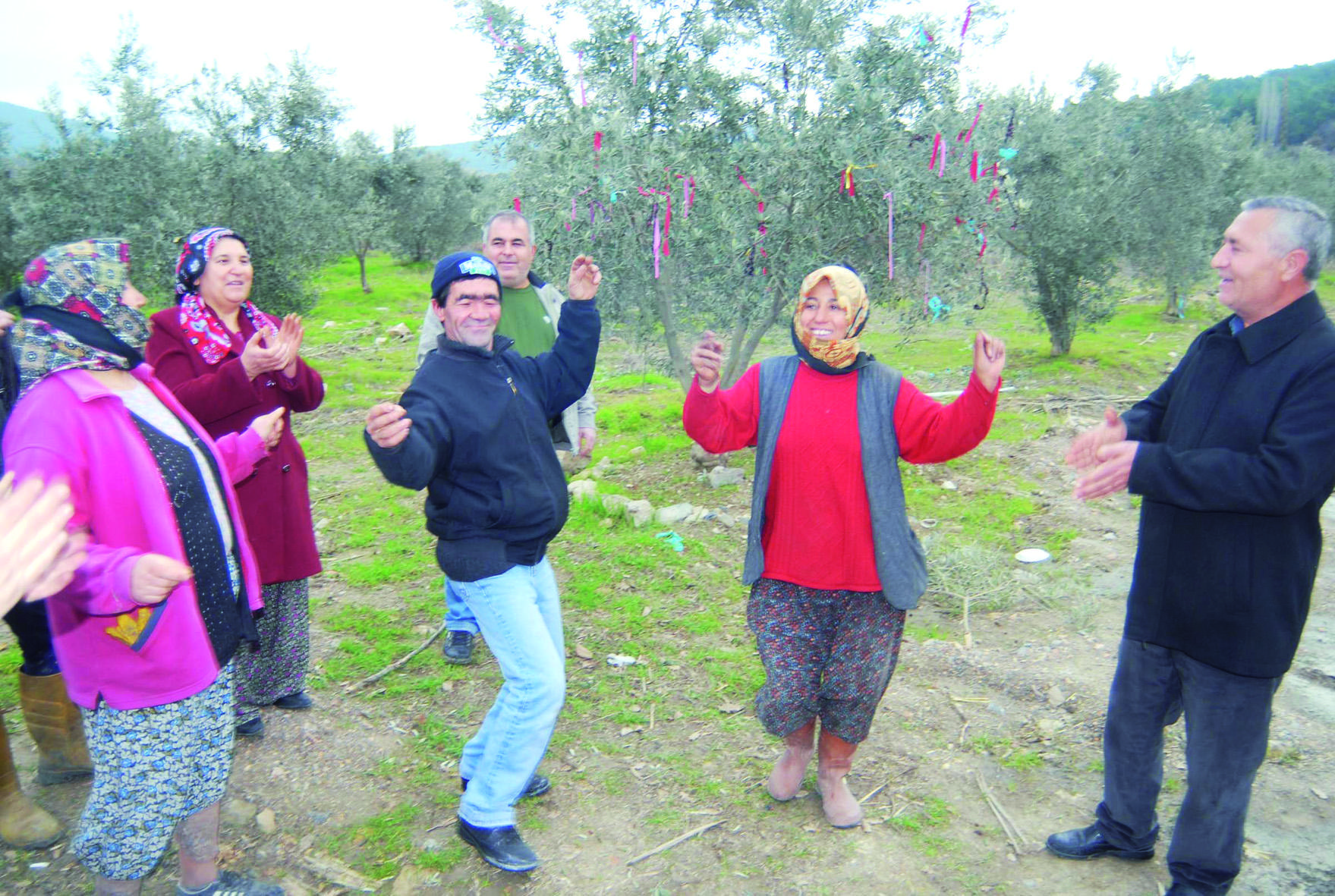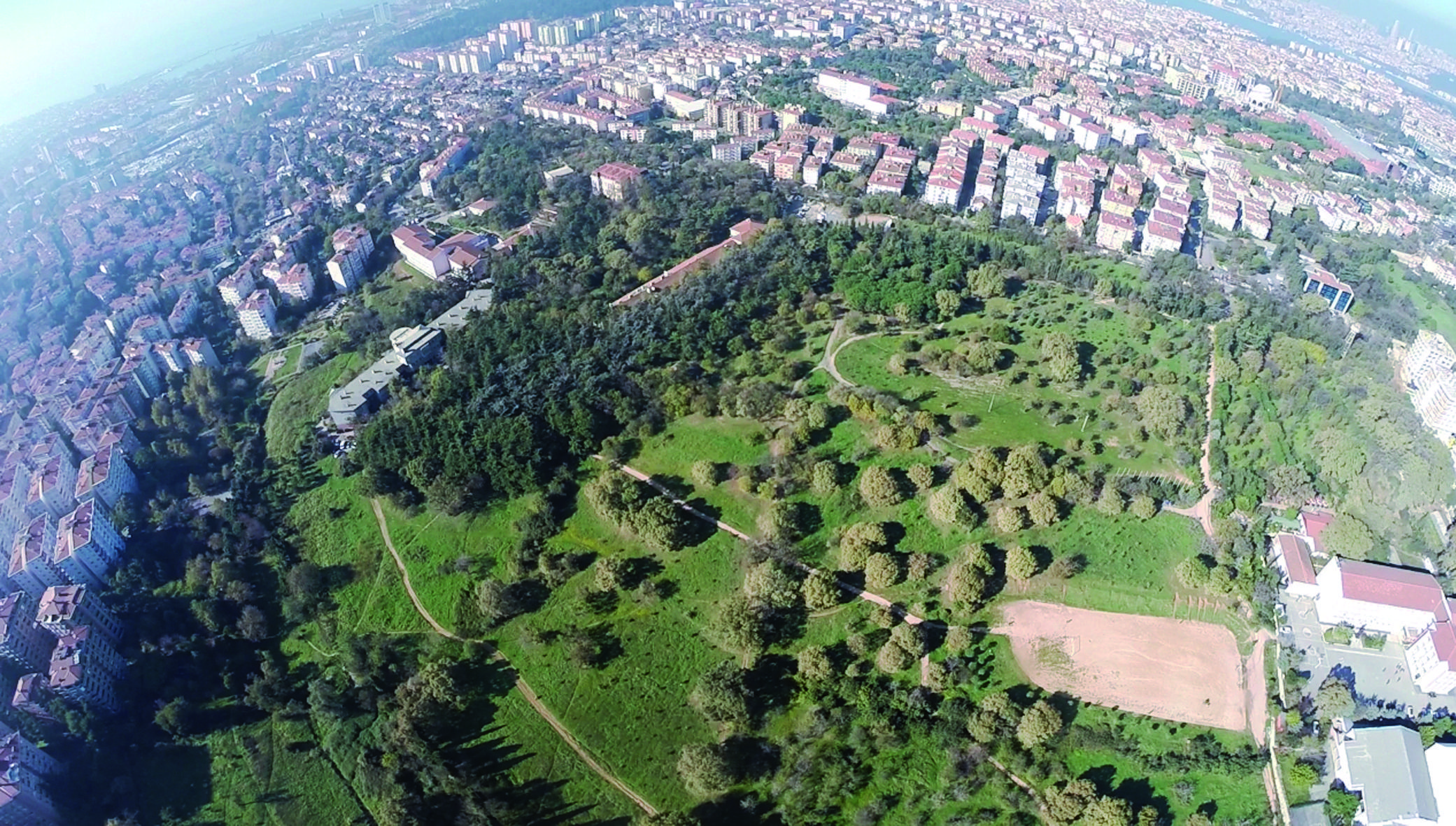2014: The year of labor disasters, police violence, environmental struggle and refugee flow
ISTANBUL

2014 has been the year when the whole world witnessed the almost non-existent labor safety in Turkey at the expense of hundreds of workers' life after the country was hit by successive accidents, including the biggest mining disaster of its recent history in the Aegean coal capital of Soma.
With its ups and downs, 2014 in Turkey was an unforgettable year in terms of deadly accidents that could have all been prevented if necessary precautions had been taken in time. Ranging from mine accidents to migrant deaths at sea, those have assumed a place in the country’s long list of ignominious fatal accidents. The death of 15-year-old Berkin Elvan, hit by a police tear gas canister in 2013, after a long period in coma marked the increase of police violence targeting peaceful demonstrations across the country. Struggles against urban development or energy projects to save the environment have spread with activists becoming more vocal since the Gezi protests. The number of refugees has also considerably risem, especially with a new flow following the jihadist siege to the northern Syrian town of Kobane.
Soma mining accident

The afternoon of May 13, 2014, marked
the deadliest ever workplace and mining accident in Turkey’s history, leaving 301 miners dead, many other miners affected by the accident and a country in mourning.
Everything started with a fire about 2,000 meters from the mine entrance, at a depth of 150 meters, in a coal mine in the western province of Manisa’s Soma district. The Prime Ministry Disaster and Emergency Management Presidency (AFAD) initially announced that a power distribution unit was the cause of the fire, but the company denied it on May 16.
The accident that took place during a shift change claimed 301 lives; more than 780 miners were inside the mine when the fire erupted. Three days of official mourning were declared on May 14 by the government once the extremity of the disaster was realized.
Eight people, including the CEO, general manager and operating manager of the Soma Coal Mine Company, were arrested as part of the probe. A Manisa court rejected the indictment prepared against 45 suspects, including eight under arrest, finding it “insufficient,” on the grounds that the document was prepared before all the complainants had testified and before the Scientific and Technological Research Council of Turkey’s (TÜBİTAK) report on the sensors in the mine was delivered.
One of the most heart-breaking scenes after the accident occurred when a miner rescued in the late hours of May 13 from inside the fire-hit mine asked a nurse if he should
pull of his boots so that the stretcher was not dirtied.
The next day, in an infamous photograph that was seen around the world, prime ministerial adviser Yusuf Yerkel was captured kicking a prostrate mourner on the ground.

Meanwhile, Turkey’s official ombudsman announced in a report on Dec. 30 that civil servants acted insufficiently in regard to the mining disaster in Soma and that they should have been probed more thoroughly.
Young Gezi victim dies after 269 days in coma

Turkey saw fierce protests in 2013, which began as a small environmental protest in Istanbul’s Taksim neighborhood and spread across the country after excessive force was used by riot police. The protests were not as powerful in 2014, but their effects continued to be seen throughout
the year.But more strikingly, 2014 has seen the youngest and eighth victim of the protests, who
died after remaining in a coma for around 9 months. Berkin Elvan, who had been in a coma since June 2013 after being struck in the head by a tear gas canister during a police crackdown on protesters, died March 11, 2014 his family announced via Twitter.
Riot police used tear gas against a group who wanted to gather to support the family during the funeral, which became one of the biggest demonstrations in Turkey's recents history.
Elevator accident brings labor safety issue on the spotlight

Ten workers were killed at a construction site in a
central Istanbul neighborhood when an
elevator carrying them suddenly plunged to the ground from the 32th floor late on Sept. 6.
The
accident occurred at the construction site of the Torunlar Center, which
is being built on the former site of Galatasaray’s Ali Sami Yen Stadium
in Şişli’s Mecidiyeköy neighborhood.
The elevator malfunctioned
while the workers were trying to leave the construction at around 7:45
p.m. after the completion of their shift.
A total of 25 suspects, of
which three were arrested, are being tried on charges of “manslaughter.”
The indictment prepared regarding the elevator accident stated that
there was a lack of grounds for legal action against the owners of the
Torun Center, including Torunlar GYO’s chairman, a board member, vice
general manager and deputy chairman.
Meanwhile, a debate was aroused
when Çelik said it was “natural” for a construction firm to cover the
expenses of children whose fathers died in the accident.
Jihadists’ advance in Kobane shakes Turkey’s southeast, triggering new refugee flow
 At least 37 people were killed
At least 37 people were killed in violent protests in October 2014 as locals hit the streets in 35 provinces, accusing the government of failing to take action against the Islamic State of Iraq and the Levant (ISIL) after it assaulted the Syrian Kurdish town of Kobane.
During the protests which were dubbed the “Oct. 6-7 incidents,” at least 37 people were killed in armed clashes between protesters demonstrating in solidarity with the Syrian border town of Kobane and groups opposing them. Others were shot dead by security forces, mostly in southeastern provinces.
More than 1,000 people were taken into custody. More than 1,100 buildings, including 212 school buildings, 67 police department buildings, 25 district governor offices, 29 political party buildings, blood donation centers belonging to the Turkish Red Crescent Society (Kızılay), 780 municipality buildings and 1,100 municipality vehicles, ambulances and police vehicles were vandalized during the clashes.
The government introduced a new security bill which increased the powers of the national police force soon after the protests.
As part of a bill adopted by Parliament in December 2014, police have been given the authority to take people who are considered to be a “serious threat to public order” into 24-hour custody without evidence, although many fear the measure will allow police to act with even more impunity than before.
The Turkish government accused Peoples’ Democratic Party (HDP) co-chair Selahattin Demirtaş of escalating the tension in the region, while Prime Minister Ahmet Davutoğlu declared that Demirtaş would be responsible for any future bloodshed in the country.
Ermenek miners perish after being submerged in sludge

Suggesting that the lessons of Soma had gone in one ear and out the other, another mining disaster occurred five months later in the Central Anatolian province of Karaman,
where 18 miners were submerged due to flooding water. The trapped miners in Karaman’s Ermenek district were 375 meters below the ground when water from a disused, neighboring mine flooded the galleries in which they were working. The water brought produced so much mud and slime that the last of the bodies could only be recovered on Dec. 4, more than a month after the accident.
While an expert report prepared for the probe into the mine disaster found the Energy Ministry’s General Directorate of Mining (MİGEM) guilty of indirectly causing the accident because it allowed the mine to be reopened even though the detected deficiencies were not remedied after an inspection in August, the mining companies running the mine were also found at fault for the accident, though the technical supervisor, permanent supervisor, and 18 miners were found to not at all responsible.
Five people, including the operating manager and owner of the mining company operating the mine and the owner of the mining areas’ license, were arrested as part of the probe into the accident.
Labor Minister Faruk Çelik admitted Nov. 6 that there were systemic flaws in Turkey’s mining sector that were causing fatal accidents, but he was careful to avoid pinning blame on himself even as the labor policies of his governing party came under the spotlight.
Agricultural workers killed in traffic mishap

Eighteen people were killed and 27 were injured after
a bus rolled over and fell into a ditch in the southern province of Isparta in the morning hours of Oct. 31.
The bus, which was carrying a group of agricultural laborers, mostly women, working in an apple plantation near Isparta’s Yalvaç district, was believed to have been caused by a brake failure. The bus first crashed into a retaining wall on the roadside before rolling over. Some 45 people were in the bus at the time of the accident, even though the bus was only designed to transport 24 passengers.
Refugees drown off Istanbul as boat capsizes

In the early hours of Nov. 3,
a boat carrying 42 refugees en route to Romania capsized at the northern end of the Bosphorus in the Black Sea. The death toll hit 27, while the Coast Guard said 12 of the migrants on board were children.
The boat had set sail from Istanbul’s Florya neighborhood and traversed the entire Bosphorus without being spotted despite the continuous monitoring of the strait.
Turkish Transport Minister Lütfi Elvan confirmed that nine of the passengers had Afghan passports and it was possible that all of the passengers were from Afghanistan.
Villagers win fight against coal plant, despite losing trees

A small village in the Aegean district of Soma came to the country’s agenda on Nov. 7, 2014, when more than 6,000 olive trees were cut for the construction of a coal plant, despite the month-long protests of the local villagers.
On Dec. 26, 2014, Turkey’s Council of State dismissed the Cabinet’s rapid expropriation decision in the Yırca village of the Manisa province, marking a crucial ruling for the locals who lost thousands of olive trees over a coal power plant project. The Kolin Group energy company felled a total of 6,666 olive trees, the main source of income for the town, to build a coal plant following the rapid expropriation decision. Clashes erupted between private security officers and the locals who had been guarding the grove for more than 52 days.
Move to build mosque turns Istanbul grove into battleground

The planned construction of a small mosque next to the protected Validebağ grove on
Istanbul’s Asian side triggered a new environmentalist protest in October.
Local activists stayed in tents for days to protect the area against the cutting down of trees. Police attacked activists several times with tear and water cannon before forcibly removing tents from the area.
On Oct. 25, the local Üsküdar Municipality rejected claims that the land for the project was part of the historic grove, saying the area was municipal property and that the construction did not violate the law.
Construction has been continuing under tight security measures, with riot police and water cannon trucks stationed in the area.
NEWS TIMELINE OF 2014
